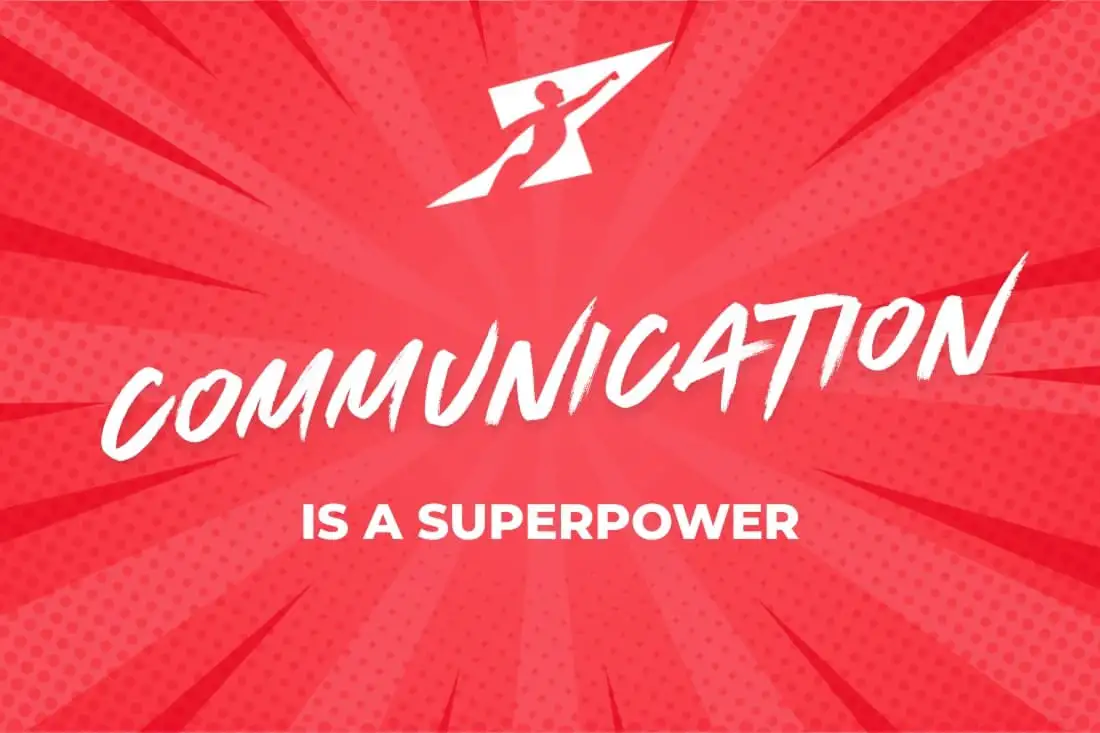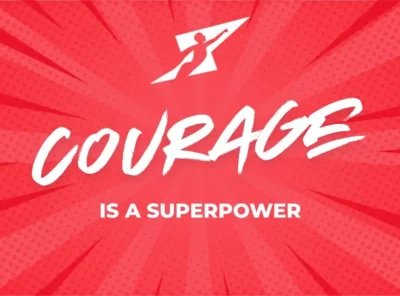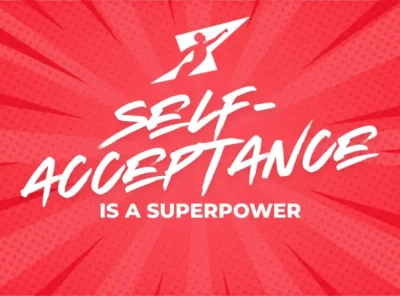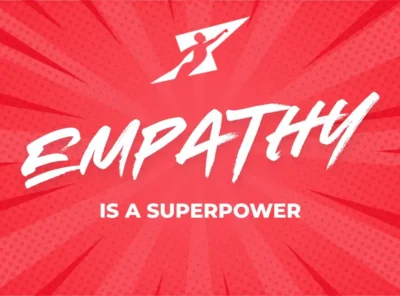Communication is a Superpower
There are a lot of different superpowers in the world.
Some are more consequential than others.
In the 1999 movie Mystery Men, William H. Macy plays a superhero named “The Shoveller.” His superpower is that he shovels, really well.

This sort of power would be very useful, but only in very specific circumstances. In an everyday setting, it’s practically useless.
Other superpowers have such broad applicability that they become the building blocks for other superpowers. They transcend the category to become something else. Something I, and others, refer to as meta-abilities.
Today, let’s talk about communication, which I believe to be one of the 4 most powerful meta-abilities you can develop.
✉️ Get the Infinite Impact
Join thousands getting weekly wisdom on unlocking hidden potential, building meta-abilities, and creating meaningful change through practical frameworks you can use immediately.
Seeds of the Extraordinary
What is communication?
Is it talking, writing, or body language?
Yes.
Is it teaching, controlling, or persuasion?
Yes.
Is it the stories we remember, the stories we tell ourselves, or the ones we invent about the meaning of the world around us?
Yes.
It is all of those and more.
Communication is information, sent or received. We are constantly communicating and being communicated with. It is so ever-present that its enormous scope fades into the background.
In short, it is “everything, everywhere, all at once.”
It is for this reason, that it is the seed from which so many other abilities grow.
Model Communication
Because people communicate with one another for all sorts of reasons, learning to communicate more effectively is both practical and immensely consequential.
Whether you want to mend a fracturing relationship, deliver a powerful sales pitch, or negotiate a peace treaty that reduces the risk of WW3, effective communication really is the key.
In order to do this, let’s breakdown this superpower into a simple mental model we can apply to any situation.
If you want to be a Super Communicator, this is the place to start.
1. The Platinum Rule of Communication
The single most important thing you can do to improve your communication and have it ripple across every aspect of your entire life, is to understand this simple fact:
All communication has a goal.
Whether you deliberately define the goal for your communication or not, there is always an underlying purpose.
- When you react to an insult, you may be satisfying your goals of expressing your anger, hurting the other person, or establishing a boundary.
- When you negotiate against yourself on the sales call, you may be satisfying your goals of not appearing arrogant or salesy, luring them in to close so you can quell your anxiety about bills and payroll, or figuring out where the pricing sweet spot is.
- When you flippantly threaten nuclear war, you may be satisfying your goals of appearing to be a big, strong, tough boy rather than a weak, insecure, toddler who’s in over their head.
When we fail to carefully consider the outcome we want, we leave our success to chance. One of the most significant changes you can make is to deliberately and thoughtfully choose the goal for your communication, more often.
The Platinum Rule of Communication is to communicate with purpose, each and every time.
Don’t start communicating until you consider the outcome you want.
2. The Golden Factors of Communication
Once you start communicating with purpose more often, you will notice that there are two factors that keep coming up.
- Information
- Emotions
Whenever you communicate, these two interrelated factors will be there. The more carefully you consider these two factors in your communication, the more likely you are to achieve your goals.
Whether you are trying to communicate persuasively, forcefully, creatively, or any other way, these two factors will be there, leading the way.
Information
When I write posts like this, I am transmitting information to you, the reader.
What you receive, as the reader, is influenced by the words I use, the examples I share, the sources I cite, and even the information I choose to leave out. Your understanding is shaped by the fact that I have written this, as opposed to recording a video or podcast, or delivering it via a coaching session.
All of these are variables that I must think about if I want you to receive the information the way I intend it to be understood.
The gap between my ideas and what you walk away with, is filled by all of the choices I make about how to most effectively and accurately communicate this information.
Emotions
Email is a near perfect form of communication, for machines.
The information is sent from a source to a destination, within seconds, as an exact replica.
Machines do not care if the information being sent is a love letter, a legal document, or latin “Lorem ipsum…” placeholder text.
But humans are not machines. We do care if it’s a love letter or a legal document. And the same information can be read in two entirely different ways, depending on countless variables.
“Great haircut, Jeff”
Is that honesty, or sarcasm? Are they flirting with me? What does that really mean?
In addition to the information we’re trying to convey, there is also a need for us to understand how emotions shape our understanding of information. Sometimes, adding some extra words or formatting goes a long way.
3. The Practice of Communication
There are so many elements to communication that you could easily overthink it. When you get too “in your head,” things start to break down and conversations start looking like Charles Barkley’s golf swing.

But the tools I’ve outlined above may help you avoid all of that. Whether you are writing, speaking on stage, or recording a video, the steps remain the same:
- Platinum Rule: Set your goal. What do you want to happen?
- Golden Factor 1: In service of your goal, determine what information needs to be conveyed, and come up with some basic guidelines for how to best do that.
- Golden Factor 2: In service of your goal, determine what emotions you wish to evoke or temper, and come up with some basic guidelines for how to best do that.
Everything else after that, is practice.
Communicate Toward A Better World
- We can all be more deliberate with our communication.
- We take time to be more empathetic and understanding.
- We can do the work to be more clear and honest.
If you that sounds like what you want, I have one more tool for you.
Anchor your communication in your aspirational identity.
Personally, I aspire to be a real-life superhero. I aspire to help people.

I believe the best world would be safe and equitable. I believe that none of us are free until all of us are free. I know that all of us are more than what we seem on the surface. Nearly everyone has been hurt, scared, and insecure at some point in their lives. At the same time, nearly everyone has felt invincible, passionate, and loved.
These are the perspectives from which I communicate. To be kind, in the face of someone else’s anger, pain, or ignorance, is a little easier when I’m anchored in who I aspire to be.
If you can figure out your own North Star, and filter your Platinum Rules and Golden Factors through that, you can change the world around you, little-by-little.
Communication can change the world.
When you communicate with more purpose, and do it more deliberately, things will change.
- It can change your industry.
- It can change your workplace.
- It can change your home.
- It can change you.
That change can start today.
All you have to do is slow down long enough to communicate with purpose, and start doing that from now on.
You might also be interested in…
I hope you enjoyed this post!
If you liked this post, then you will LOVE my newsletter (The Infinite Impact)
and my learning community (The Superhero Institute).






